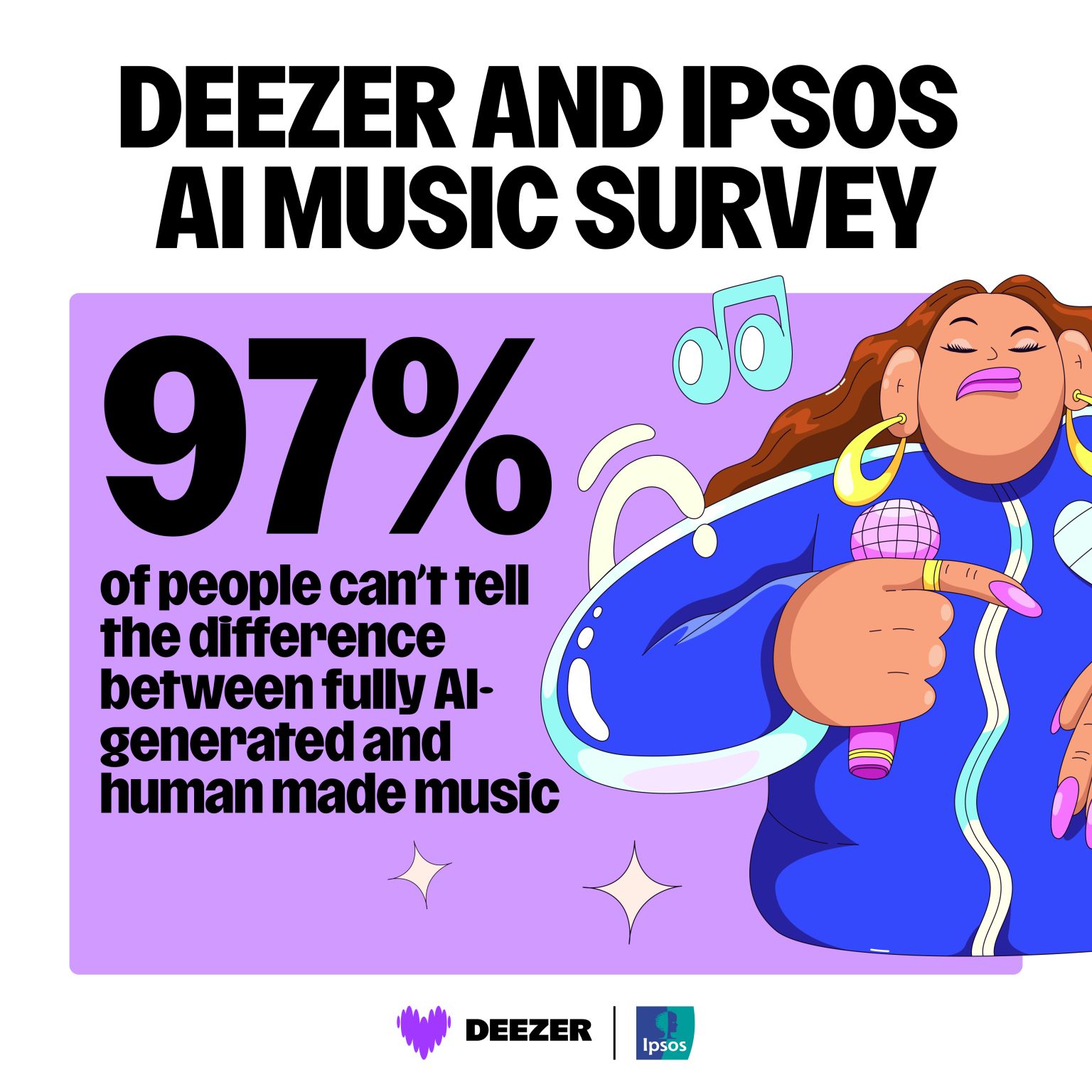In a new study carried out by Deezer together with Ipsos in eight countries, 9,000 people listened to three songs: two generated 100% by artificial intelligence and one composed by humans. The result was clear (and baffling): 97% couldn't tell which was which.

This fact confirms something we already sensed: AI is not only making progress in sound quality, but it is also blurring the boundaries between the human and the synthetic in the musical field. But the most worrying thing isn't whether AI sounds good. The urgent thing is to talk about transparency, rights and sustainability for those who create real music.
Numbers that make noise:
- Every day, 50,000 songs generated 100% by AI are uploaded to Deezer. They represent 34% of all daily shipments.
- 70% of people believe that AI threatens the economic sustainability of artists, producers and composers.
- Up to 70% of the plays of these songs are considered Fraudulent.


So what's the problem?
Today, many platforms don't differentiate between a human work and an AI-generated one. This distorts recommendations, pollutes rankings and above all, Dilute the income of real artists.
Even worse: some companies are training models with copyrighted material, without permission or compensation. That is not innovation. It's exploitation.
At Random Sounds, we have a clear stance:
- We defend an ecosystem where technology empowers artists, not replaces them.
- We don't distribute music made with AI
- We believe that music needs more real voices, not algorithms that search for clicks.
AI can be a tool. But it should never replace the creativity, culture, or identity of those who make music.
If you're an artist or a label, it's key that you understand this new scenario. Choose allies that take care of you and distributors that don't mix you up with artificial noise.
That's what we're here for.

.png)

.png)

.png)




%201.png)

